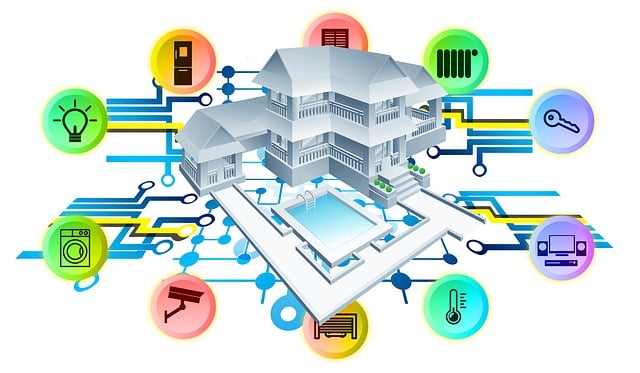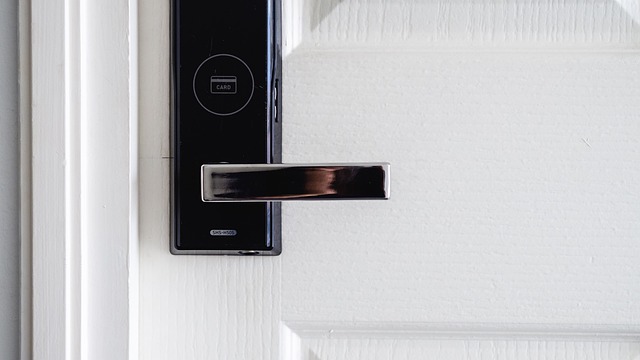
Category: Home Security for Renters: Affordable Solutions and Tips
Home Security for Renters: Affordable Solutions and Tips
Introduction
In today’s rapidly evolving world, ensuring home security is a top priority for individuals across the globe. For renters, this task may seem daunting, especially when considering the financial constraints that often accompany renting. However, securing your rental property doesn’t have to be expensive or complex. This comprehensive guide aims to demystify home security for renters, offering affordable solutions and practical tips tailored to their unique circumstances. By the end of this article, readers will have a thorough understanding of how to protect their spaces without breaking the bank.
Understanding Home Security for Renters: Affordable Solutions and Tips
Definition: Home security for renters refers to the measures and strategies employed by individuals renting residential properties to safeguard their living spaces, personal belongings, and ensure their well-being. It involves a combination of physical, electronic, and behavioral precautions designed to deter crime and provide peace of mind.
Core Components:
- Access Control: Implementing secure entry systems like door locks with advanced security features (e.g., smart locks), key fobs, or code-based access.
- Surveillance: Utilizing surveillance cameras both indoors and outdoors to monitor activity and deter potential intruders.
- Alarm Systems: Investing in basic or advanced alarm systems that can detect unauthorized entry and alert authorities.
- Personal Safety Measures: Practicing safety protocols such as securing valuable items, maintaining good lighting, and establishing emergency contact lists.
- Tenant Education: Staying informed about local crime patterns and security best practices within the rental community.
Historical Context: The concept of home security for renters has evolved significantly over time. Historically, physical locks and basic alarm systems were the primary defenses against burglary. However, with advancements in technology and an increase in property-related crimes, there’s been a growing demand for more sophisticated yet affordable security solutions. Today, renters have access to a wide range of options tailored to their specific needs and budgets.
Significance: Securing your rental home is not just about protecting physical possessions; it also has profound psychological benefits. A safe and secure environment contributes to improved mental well-being and overall quality of life for tenants. Moreover, proactive security measures can help maintain the value of the property and foster a sense of community among neighbors.
Global Impact and Trends
Home security for renters is a global concern with diverse regional influences. Here’s a glimpse into some key trends:
| Region | Trends | Influence |
|---|---|---|
| North America | Increasing adoption of smart home technology, with 37% of US households using at least one smart home device in 2021 (Source: Statista). | Smart locks and security cameras are becoming mainstream, offering renters enhanced control and monitoring. |
| Europe | A rise in DIY (Do-It-Yourself) security installations due to cost-effectiveness and customizable options. | Renters can now set up basic security systems at a fraction of the cost, catering to individual preferences. |
| Asia Pacific | Growing demand for integrated security solutions that combine access control, surveillance, and alarm systems. | Local manufacturers are introducing innovative, affordable packages tailored to urban rental markets. |
| Latin America | Emphasis on community-based security with shared resources and collaborative efforts among neighbors. | This approach leverages community strength while still providing individual security enhancements. |
These trends highlight the diverse ways renters worldwide are embracing home security, often driven by technological advancements and economic considerations.
Economic Considerations
The market for home security solutions is influenced by several economic factors:
- Supply and Demand: The availability of affordable security products and services meets the growing demand from renters seeking cost-effective protection.
- Market Dynamics: Competitive pricing strategies among security providers encourage innovation and accessibility, making security options more affordable.
- Investment Patterns: Private investments in home security startups are on the rise, fostering development of cutting-edge yet budget-friendly solutions.
- Economic Systems: In many regions, rental markets are heavily influenced by local economies, affecting tenants’ disposable income for security upgrades.
For renters, understanding these dynamics can help make informed decisions when investing in home security measures.
Technological Advancements
Technology plays a pivotal role in shaping the future of home security for renters:
- Smart Home Automation: Smart locks, thermostats, and cameras now integrate seamlessly, allowing tenants to control their security environment remotely via smartphone apps.
- AI-Powered Surveillance: Artificial Intelligence (AI) enhances video analytics, enabling improved motion detection and facial recognition capabilities.
- Biometric Access Control: Fingerprint or retinal scanners offer advanced authentication methods for secure entry.
- Internet of Things (IoT) Devices: Numerous IoT devices, from smart plugs to environmental sensors, contribute to a comprehensive home security ecosystem.
These technological advancements not only make security systems more effective but also accessible and user-friendly.
Policy and Regulation
Government policies and regulations significantly impact the home security landscape for renters:
- Building Codes: Many regions mandate minimum security standards for rental properties, ensuring basic safety measures are in place.
- Data Privacy Laws: Regulations like GDPR (General Data Protection Regulation) in Europe govern how security companies collect and store tenant data, emphasizing privacy rights.
- Insurance Requirements: Landlords may require tenants to obtain renter’s insurance, covering personal belongings and liability.
- Local Crime Prevention Initiatives: Community-based programs often provide resources and guidelines for renters to enhance their security posture.
Understanding and adhering to these policies are essential for both landlords and renters to ensure compliance and maintain a safe living environment.
Challenges and Criticisms
Despite the numerous benefits, home security for renters faces several challenges:
- Cost: While affordable options exist, initial investment costs can deter tenants, especially those with limited financial resources.
- Installation Complexity: Setting up security systems may require technical expertise, which some renters might not possess.
- Privacy Concerns: With the proliferation of surveillance technology, there are valid privacy worries, especially regarding data collection and usage.
- Landlord Relations: Tenants may face resistance from landlords who worry about perceived increased maintenance costs or potential liability issues.
Solutions and Strategies:
- Offer scalable security packages with flexible payment options to cater to various budgets.
- Provide DIY installation guides and tutorials to simplify the process.
- Ensure data privacy through secure protocols and transparent practices, building tenant trust.
- Collaborate with landlords by highlighting long-term benefits, such as reduced insurance claims and improved property values.
Case Studies: Successful Implementations
Case Study 1: The Urban Co-op Community
In a bustling urban neighborhood, a group of renters formed a co-op to address their security concerns. They pooled resources to install a centralized security system, including surveillance cameras, motion sensors, and smart locks. This collaborative approach not only enhanced their collective safety but also fostered a strong sense of community. The co-op members organized regular security training sessions, ensuring everyone understood the system’s capabilities and limitations.
Key Takeaways:
- Community-driven initiatives can lead to cost-effective and efficient security solutions.
- Education and empowerment are powerful tools for tenant safety.
- Collaboration among neighbors strengthens the overall security posture.
Case Study 2: Smart Home Security for Renters on a Budget
A tech-savvy renter in a suburban area decided to transform their security setup single-handedly. They started by installing a basic alarm system with motion detectors and door sensors. Then, they integrated smart locks and surveillance cameras using readily available DIY kits and smartphone apps. This approach allowed them to customize their security environment while keeping costs low.
Lessons Learned:
- Basic security systems can provide significant deterrence at minimal cost.
- DIY installations are accessible and offer flexibility for tenants with specific needs.
- Smart home technology enables remote monitoring, offering peace of mind.
Future Prospects: Emerging Trends and Growth Areas
The future of home security for renters is filled with exciting possibilities:
- AI-Driven Personalization: Advanced AI algorithms will learn tenant behaviors, customizing security settings to individual preferences.
- Hyperlocal Security Networks: Renters in close proximity may share security resources, creating micro-communities focused on collective safety.
- Integration with Smart Homes: Security systems will seamlessly integrate with smart home devices, providing a unified control panel for tenants.
- Predictive Analytics: Utilizing machine learning, security platforms can anticipate potential risks and proactively alert users.
- Blockchain for Data Security: Blockchain technology ensures secure data storage and sharing, addressing privacy concerns.
Conclusion: Securing Your Rental Space Today and Tomorrow
Home security for renters is not just a necessity; it’s an investment in one’s well-being and peace of mind. By embracing affordable solutions and staying informed about emerging trends, individuals can transform their rental spaces into secure havens. This article has provided valuable insights into the various aspects of home security, from historical context to future possibilities.
As technology continues to evolve, renters have an increasing array of options to choose from. From basic alarm systems to cutting-edge smart home integrations, there’s a solution for every budget and preference. Moreover, community-based initiatives and educational resources empower tenants to take proactive measures.
In the ever-changing landscape of home security, staying informed, adaptable, and engaged is key. With the right tools and mindset, renters can confidently navigate their security needs, ensuring a safe and secure rental experience.
FAQ Section: Addressing Common Concerns
Q: I’m on a tight budget. Where should I start with securing my rental home?
A: Begin with basic security measures like installing good quality locks, ensuring proper lighting, and maintaining a secure entrance. Consider affordable alarm systems or DIY surveillance solutions. Regularly review your options as costs can vary significantly.
Q: How can I ensure my privacy while using security cameras?
A: Choose reputable security providers that prioritize data privacy. Understand their data handling practices, use encryption where possible, and keep your camera’s field of view focused on relevant areas only. Periodically audit your storage and sharing settings for added protection.
Q: Can I install a security system myself, or do I need professional help?
A: Many DIY security systems are user-friendly and can be installed with basic tools. However, complex setups may require professional assistance, especially for wiring and integration. Research different options, follow instructions carefully, and consider seeking help if needed to ensure proper installation.
Q: What should I do if my landlord refuses to install a security system?
A: Engage in open dialogue with your landlord, highlighting the benefits of improved security for both parties. Offer to contribute towards installation costs or suggest affordable options. If unsuccessful, consult local tenancy laws regarding landlord obligations and tenant rights.
Q: How can I stay updated on the latest home security trends?
A: Follow reputable security blogs, subscribe to industry newsletters, and join online forums where experts and enthusiasts share insights. Social media platforms like LinkedIn and Twitter are also excellent sources for staying informed about emerging technologies and best practices.









